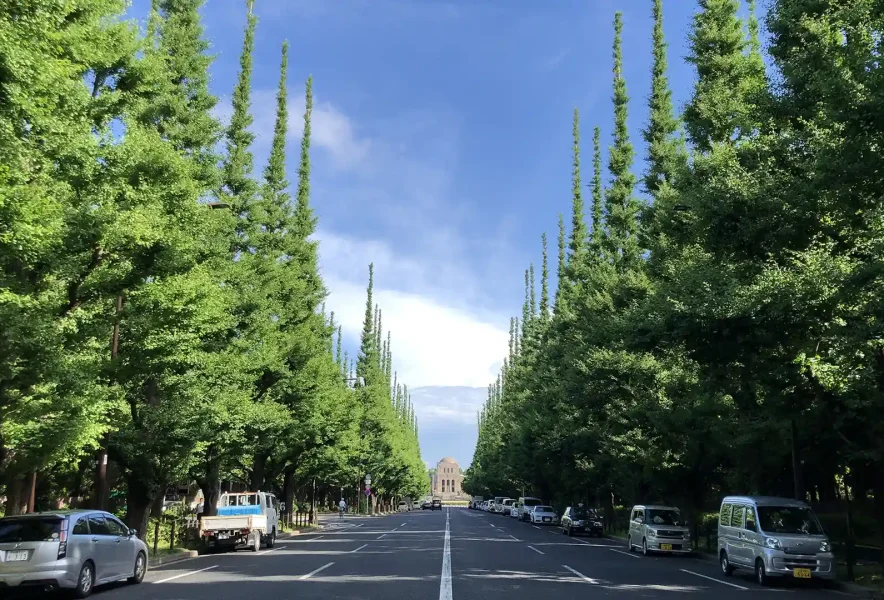Even in Tokyo, where many buildings and stores are crowded together, Meiji Jingu Gaien is an urban oasis surrounded by greenery where you can enjoy nature in all four seasons. With a variety of facilities for sports, arts, and culture, there are many other attractions in addition to nature. A redevelopment project is underway, scheduled for completion in 2036. In this issue, we would like to introduce you to the ever-changing charms of Jingu Gaien.
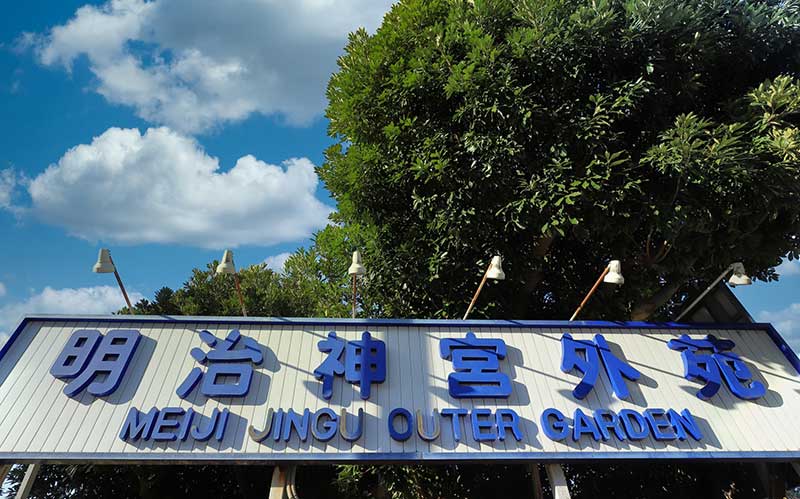
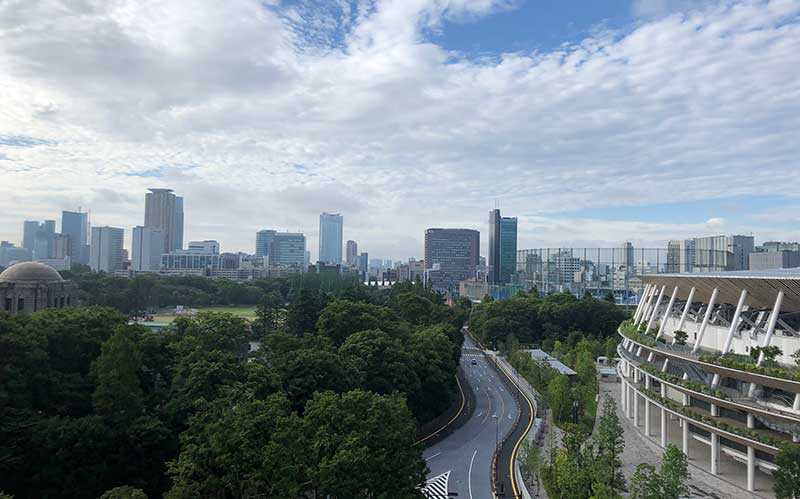
What is Meiji Jingu Gaien like?
Meiji Jingu Gaien, as the name implies, is the outer garden of Meiji Jingu Shrine, a vast area of land that spans Shinjuku, Minato, and Shibuya wards. The term “gaien” refers to the gardens, grounds, and parks that extend outside of and around the grounds of shrines and temples.
Meiji Jingu Shrine was founded in 1920 as a shrine dedicated to Emperor Meiji and his wife. The history of Meiji Jingu Outer Gardens began six years later, in October 1926. In order to pass on to future generations the accomplishments of Emperor and Mrs. Meiji, the people of Japan donated money to build memorial buildings such as the Seitoku Memorial Picture Gallery and the Constitution Memorial Hall, as well as sports facilities, which were dedicated to Meiji Jingu Shrine.
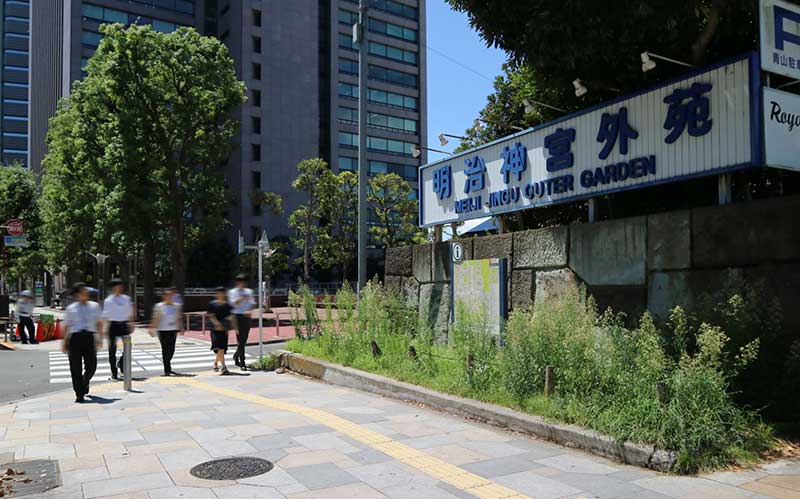
Until the last World War, it was managed as a national facility, but after the war it was managed and operated as a project of the religious corporation Meiji Jingu. Sports and cultural facilities were expanded to include a ball field, tennis courts, and a golf driving range, making it a popular spot for promoting health and culture.
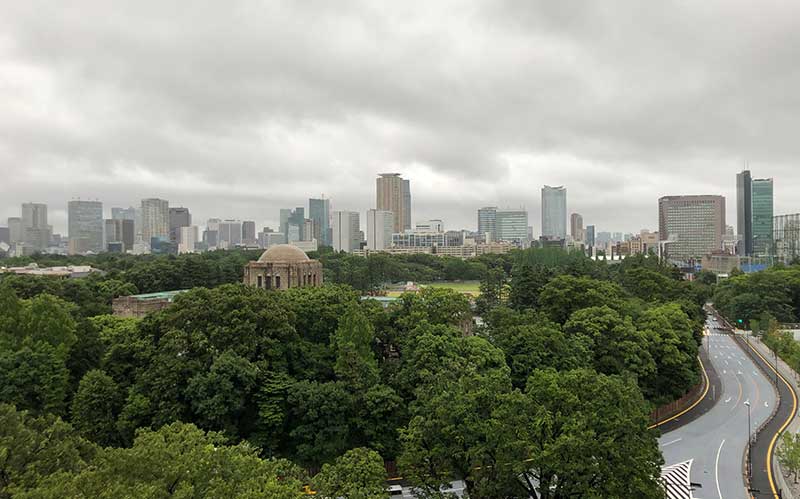
Enjoy watching sports and moving at Meiji Jingu Gaien
Jingu Gaien offers a variety of ways to enjoy nature and sports facilities for every occasion. Here are some of the main attractions and ways to enjoy them.
Enjoy watching sports games
Meiji Jingu Baseball Stadium, located in Jingu Gaien, is used for student and professional baseball games. As the home ground of the professional baseball team Yakult Swallows, the stadium also hosts Tokyo Rokko Daigaku (six Tokyo universities) and high school baseball games, allowing visitors to watch powerful games played right in front of their eyes.
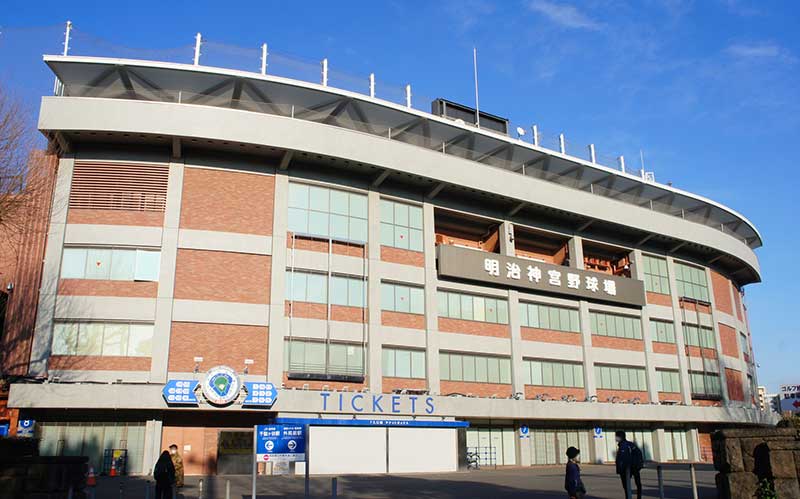
It is the home ground of the Yakult Swallows, but because it is not a dedicated stand, you can see professional baseball players pulling off the bench with backpacks on their backs after games, which is one of the charms of Jingu Baseball Stadium, where you can feel close to the players.
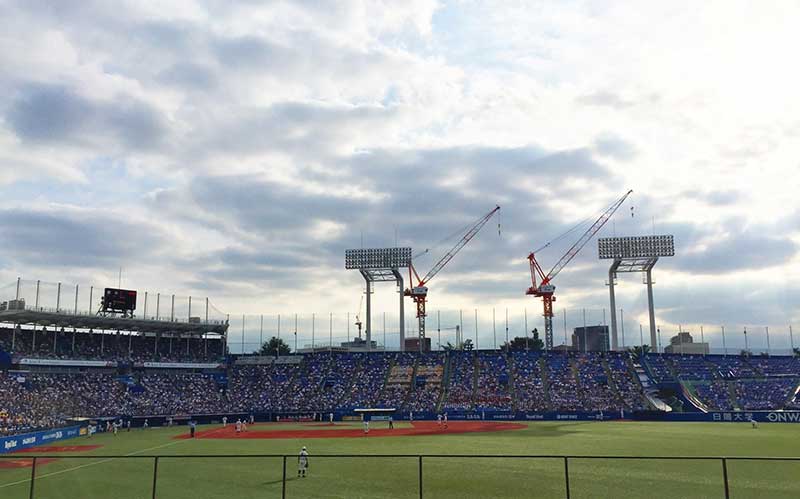
Baseball fans and sports enthusiasts are encouraged to visit.
Physical exercise at sports facilities
For those who prefer to enjoy sports by themselves rather than watching them, we recommend that you exercise your body at the sports facilities in Jingu Gaien. There are facilities to enjoy various sports such as batting domes, tennis courts, ice skating rinks, and futsal courts. Enjoy your favorite sport with your friends or a group of friends.
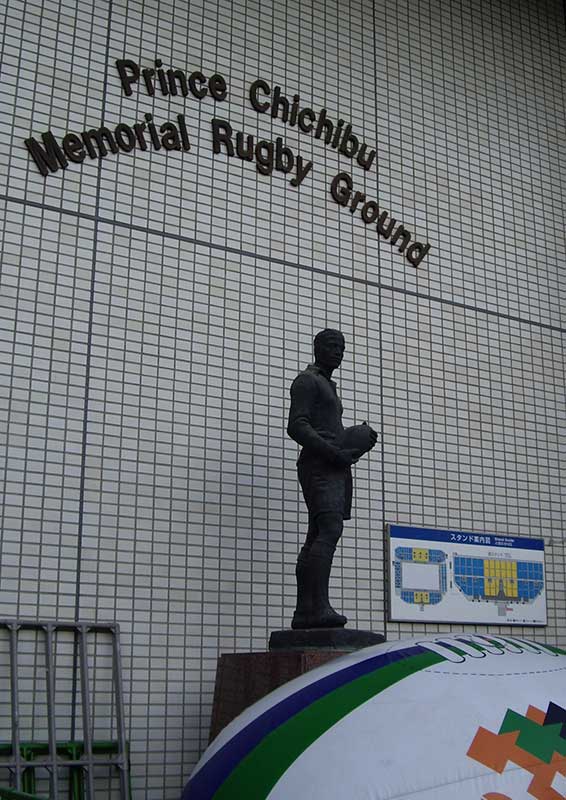
Meiji Jingu Gaien Driving Range, which was popular among many people, closed on December 31, 2022.This driving range started in 1972, when 24 hitting bays were set up as a golf driving range when the Jingu Stadium grounds were not used for baseball.
In 1973, a 72-bat golf driving range was built at Jingu Daini Ballpark. The golf practice equipment was removed when baseball games were played, and when the baseball games were over, it was set up again as a golf driving range. In 1981, an electric fence was installed to facilitate the dual use of baseball and golf.
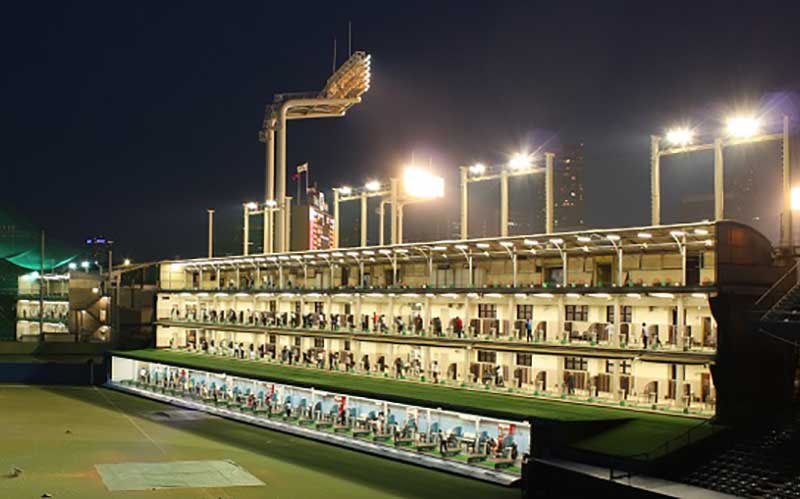
Image: official website http://www.meijijingugaien.jp/sports/golf/
Entering the top floor of the driving range, one could enjoy an exhilarating view of the ground from a high vantage point, and since the range was open for night games, it was crowded with people on their way home from work. A large outdoor driving range was a luxurious space in the metropolis of Tokyo, but due to the redevelopment plan of Jingu Gaien, the second driving range was demolished. After the redevelopment, will there be a driving range with the latest facilities?
Take a stroll in Jingu Gaien
Jingu Gaien is surrounded by abundant nature. There are many places of interest, such as the rows of ginkgo trees that run from the Aoyama-dori Exit to the central plaza and the white pine trees, which are relatively rare in Japan. Nikoniko Park has playground equipment that can be enjoyed by small children and older children alike. Take a leisurely walk around Gaien or play with your family.
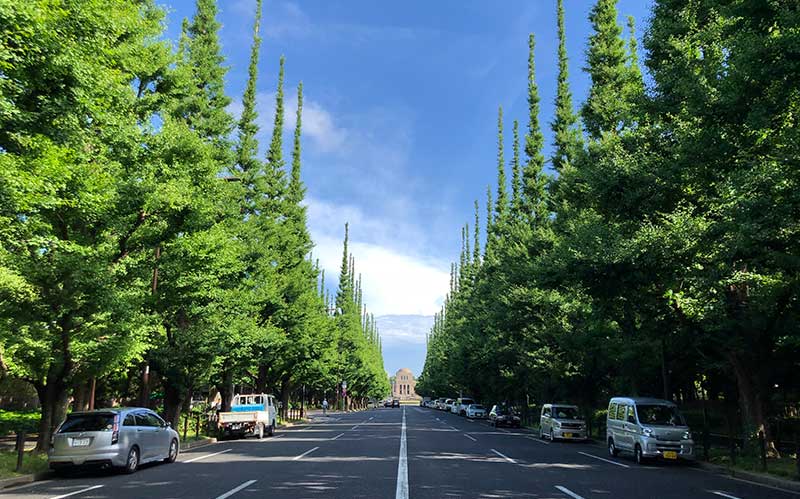
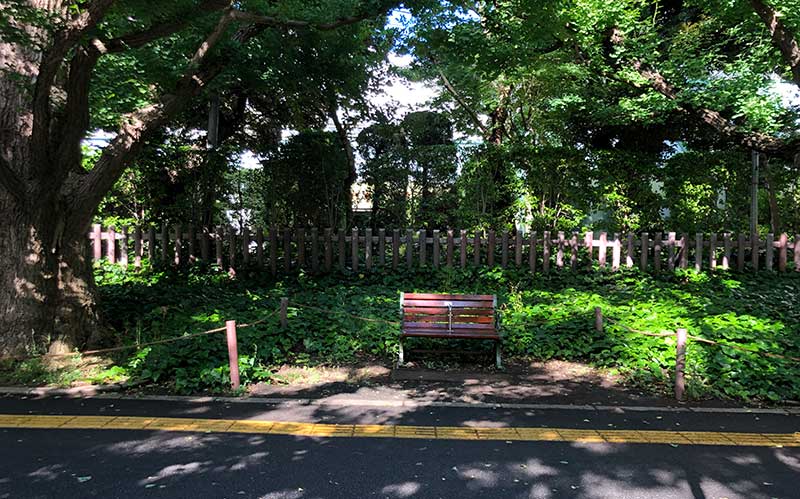
The ginkgo trees in Jingu Gaien were sown and nurtured in 1908 from seeds of ginkgo trees in Shinjuku Gyoen, and in 1923, seedlings that had grown to 6 m in height were planted, creating a row of ginkgo trees over time.
The current row of 146 ginkgo trees, spaced 9 meters apart over a distance of 300 meters, are lush in summer, and their golden leaves are illuminated in fall and can be enjoyed at night.
The Meiji Jingu Outer Garden redevelopment plan involves the cutting of trees. The original plan called for the felling of 892 trees, but due to the strong opposition to the plan, the number of trees to be cut has been revised to 743. Although all the ginkgo trees are to be preserved, the Japanese National Commission for Icomos, UNESCO’s advisory body in Japan, has stated that if the new Jingu Stadium is built in the planned location, the ginkgo trees may die. Although trees are subject to disease and longevity, we hope that future generations will be able to see the rows of ginkgo trees in the Jingu Gaien Garden.
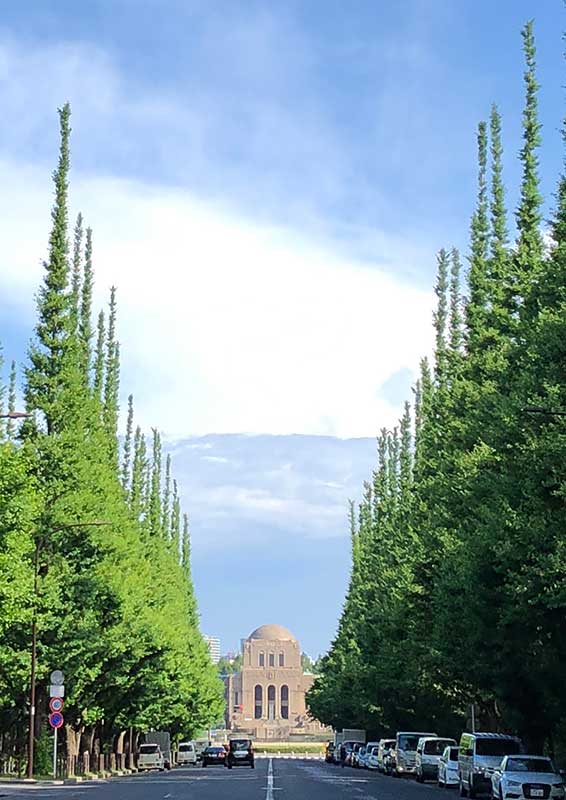
Experience art and history at Meiji Jingu Gaien
Jingu Gaien is home to a variety of facilities. There are not only sports facilities, but also art and cultural facilities, which play a role in promoting culture and other activities. Let’s check out the main facilities and their overview.
Meiji Memorial Picture Gallery
The Meiji Memorial Picture Gallery, the central facility of the Meiji Jingu Gaien, is the first art museum in Japan.Construction of the building began in March 1919 and was completed seven years later in October 1926. It is a reinforced concrete structure, and the exterior walls are made of granite from Mansei, Okayama Prefecture. The stately symmetrical building, reminiscent of the National Diet Building, is a National Important Cultural Property.
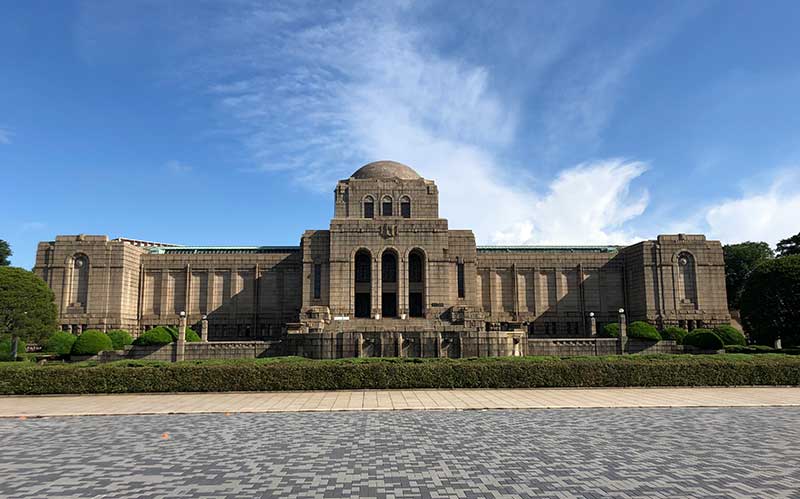
Once inside the building, the dome-roofed atrium space is dominated in the center by a large hall made of marble from the Japanese compound, and to the left and right are the painting rooms.
The museum’s 80 huge murals trace the achievements of Emperor Meiji and Empress Dowager in chronological order, from their birth to their deaths. The 46 years of their reign, from the Meiji Restoration to the new Meiji government, the abolition of feudal domains, the Imperial Rescript on Education, the First Sino-Japanese War, and the Russo-Japanese War, are all connected to the present era. Each mural has a written explanation, so visitors can fully enjoy the murals even without prior knowledge.
The Meiji Memorial Picture Gallery also offers courses in traditional Japanese arts such as ikebana, tea ceremony, and calligraphy.
Check out the events held at Meiji Jingu Gaien
Jingu Gaien hosts seasonal events.
Forest Beer Garden
The “Forest Beer Garden” is usually held from May to the end of September. This is a summer tradition where visitors can enjoy cold beer and barbecue in the natural surroundings of the outer garden.
In 2023, it will be open from Tuesday, April 18 to Sunday, September 24, and reservations can be made one month in advance.
Official website:click here
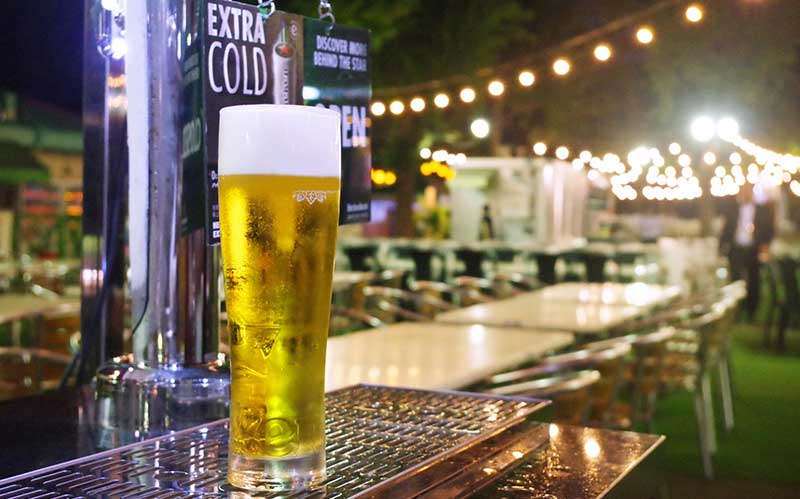
Jingu Gaien Fireworks Festival
In mid-August, the Jingu Gaien Fireworks Festival is held at Jingu Gaien, a popular summer event with 12,000 fireworks lighting up the Tokyo night. 2022 was the first time in three years that the festival was held on August 20. Please check the official website for the 2023 festival, which will be updated as soon as it is decided.
It has been announced that the 2023 event will be held on Saturday, August 12. 10,000 fireworks will be shot into the night sky of Jingu.
Official website:click here
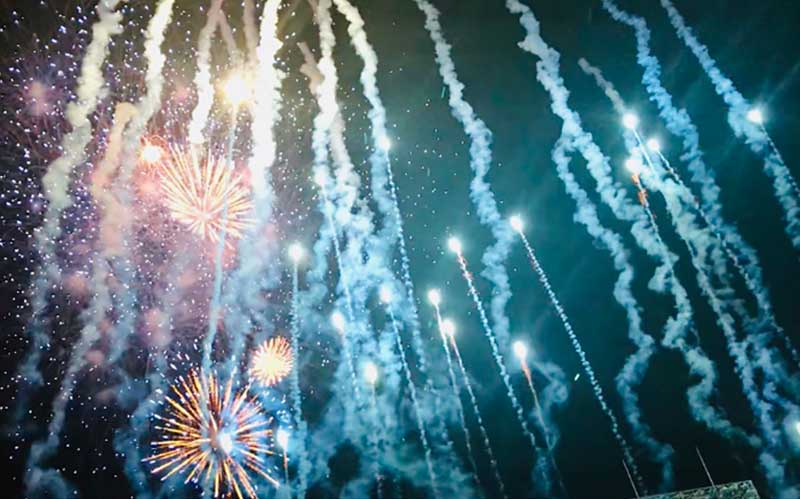
Jingu Gaien Ginkgo Festival
As autumn deepens, the Jingu Gaien Ginkgo Festival begins in mid-November to early December. During this time of year, the garden is illuminated from 4:30 p.m. to 7:30 p.m., and visitors can enjoy gourmet food served at stalls and stroll around the garden while viewing the golden ginkgo trees.
The 2020, 2021, and 2022 events were cancelled due to measures to prevent new corona infections; please check the official website for information on the 2023 event.
Official website:click here
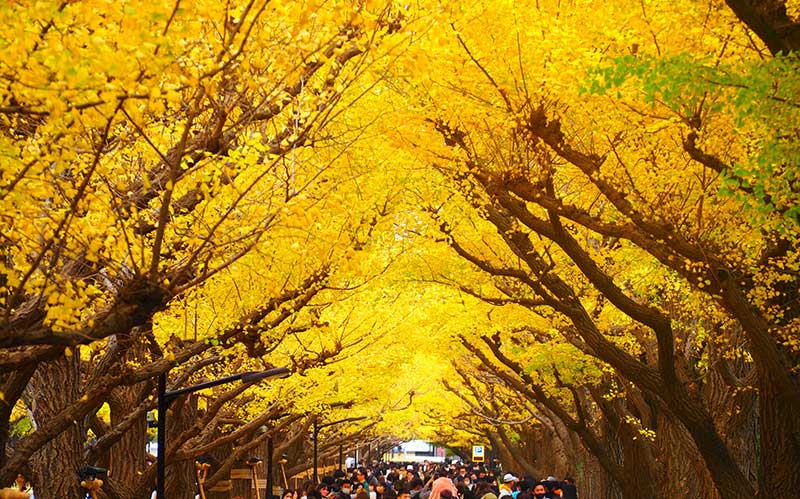
Redevelopment of Meiji Jingu Gaien
The Meiji Jingu Outer Garden Redevelopment Project began demolition of facilities in late March 2023. The old Jingu Stadium and Chichibunomiya Rugby Stadium will be rebuilt in a new location. Under the concept of “creating a town where people can casually visit and enjoy,” a high-rise building will be constructed with commercial facilities in a mall-like corridor. The new building will be completed in 2036, 13 years from now. The new Meiji Jingu Gaien will surely become a place where people gather.
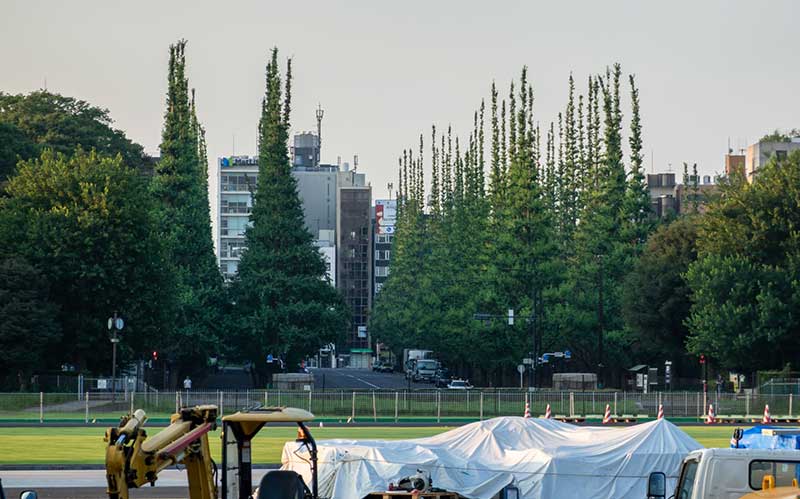
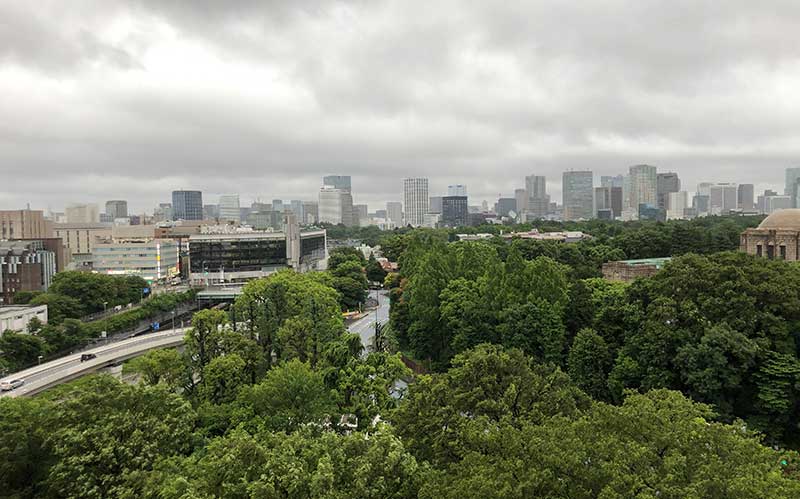
Meiji Jingu Gaien Access/Official Site
The address of Meiji Jingu Gaien differs depending on the facility. Also, please check the official website of each facility before visiting, as there may be changes in operating hours, etc. due to redevelopment in the future.
Meiji Jingu Gaien
This is the official website of Meiji Jingu Gaien. Please click here to see the details of the facilities you will visit.
Official website:click here
Meiji Jingu Baseball Stadium
Location: 3-1 Kasumigaoka-cho, Shinjuku-ku, Tokyo
Nearest station: Tokyo Metro Ginza Line “Gaienmae” station, 5 minutes walk from Exit 3
12 minutes on foot from Shinanomachi Station on the JR Sobu Line
15 minutes on foot from Sendagaya Station on the JR Sobu Line
12 minutes walk from Exit A2 of “Kokuritsu-Kyogijo” station on Toei Oedo Line
Official website:click here
Ice Skating Rink
Nearest station: 1 min. walk from “Kokuritsu-Kyogijo” station, Toei Oedo Line
5 minutes walk from “Sendagaya” and “Shinanomachi” stations on JR Chuo and Sobu lines
Official website:click here
Meiji Memorial Picture Gallery
Location: 1-1 Kasumigaoka-cho, Shinjuku-ku, Tokyo
Access : 5 minutes on foot from Shinanomachi Station on the JR Chuo and Sobu Lines
5 minutes on foot from National Stadium Station on the Toei Oedo Line
10 minutes on foot from Aoyama-itchome Station (Tokyo Metro Ginza Line, Hanzomon Line, Toei Oedo Line)
Official website:click here
Forest Beer Garden
Location:14-13 Kasumigaoka-machi, Shinjuku-ku, Tokyo
Access : 5 minute-walk from JR Shinanomachi station, 10-minute walk from Ginza line Aoyama itchome station, 5-minute walk from Oedo line Kokuritsu-Kyogijo station
Official website:click here
